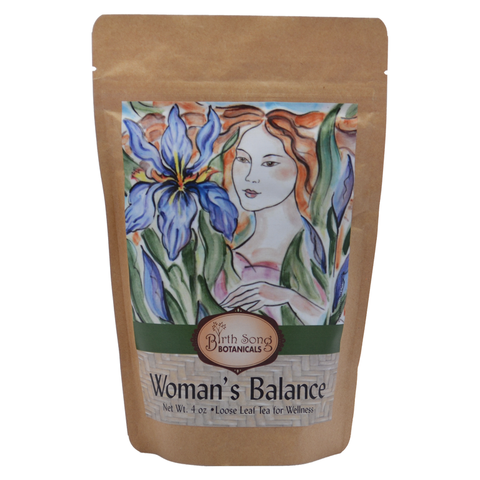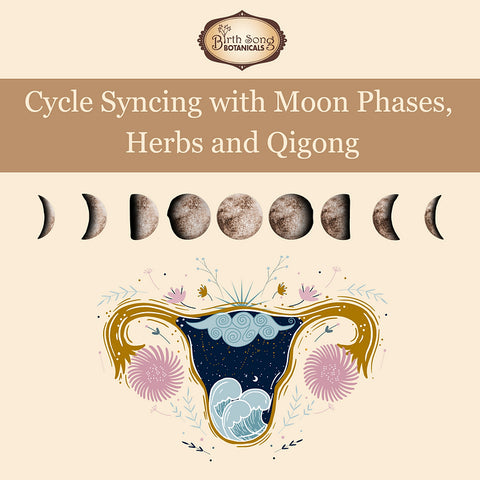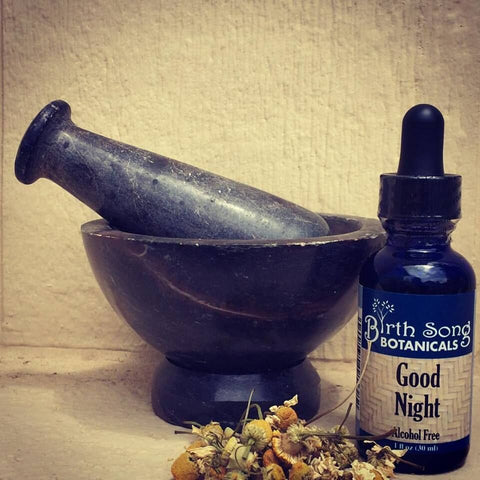Natural Ways to Boost Testosterone In Women During Perimenopause and Menopause
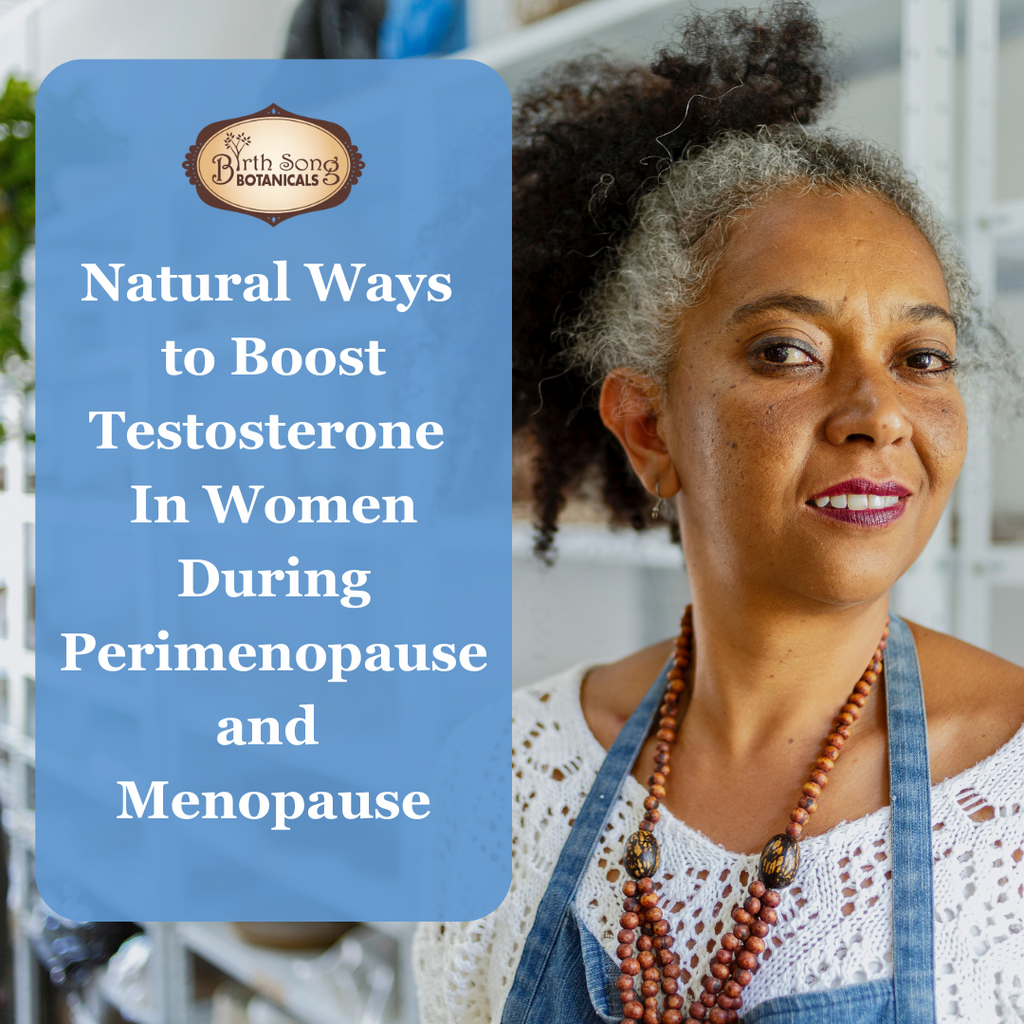
Perimenopause and menopause mark significant stages in a woman's life, accompanied by hormonal changes that can affect various aspects of well-being. One crucial hormone that experiences a decline during this period is testosterone. While traditionally associated with men, testosterone plays a vital role in women's health, influencing energy levels, mood, and muscle mass. Fortunately, there are natural ways, such as incorporating herbs and Qigong practices, to support and optimize testosterone levels in perimenopausal and menopausal women.
Herbs to balance testosterone in women
Maca Root
Maca is an adaptogenic herb known for its hormone-balancing properties. Maca root is a plant native to the Andes Mountains and is often used as a dietary supplement to boost energy, libido, and fertility.
Studies suggest that maca may help improve libido and alleviate symptoms associated with hormonal fluctuations. Some animal studies suggest that maca may have a positive impact on hormone balance, including testosterone levels. However, human studies on its effects, specifically in women, are limited.
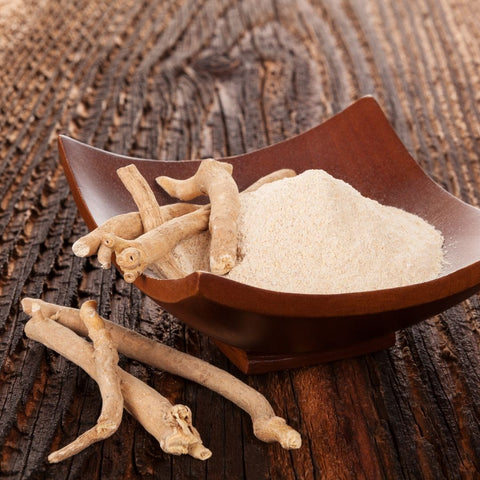
Ashwagandha Root
Ashwagandha
Ashwagandha is an adaptogenic herb that has been used in Ayurvedic medicine for centuries. We blend it in our Woman's Balance Tea and Menstrual Harmony Tincture because it's known for its potential to reduce stress and improve overall well-being. Some preliminary research suggests that ashwagandha may help manage stress responses and regulate hormone levels, including indirectly producing testosterone. Our limited studies suggest its role in enhancing overall well-being during menopause.
Qigong for Hormonal Harmony
Qigong Basics
Qigong, an ancient and modern Chinese medicine practice, combines movement, meditation, and breath control to relieve stress, promote hormonal balance and longevity.
Cycle Syncing with Qigong
The Kidney organ system in Traditional Chinese Medicine is associated with the production and regulation of hormones. Specific Qigong exercises, focused on nourishing the Kidney, Liver, and Spleen, help create a smooth energy flow that harmonizes hormones in the body.
In Qigong, we often say not to force anything. This does not mean you don't do anything. It simply means going with the flow of the greater cycles that are happening around you and letting the current of life carry you, rather than you going against the current. So for women still menstruating, aligning their exercise and diet with their menstrual and lunar cycles can lead to improved hormone balance and emotional wellbeing. Embracing rest during the menstrual phase and harnessing peak energy during ovulation can enhance your overall wellbeing.
Meditation
Incorporating various forms of meditation, such as guided visualizations, body scans, yoga nidra, mindful movement, and seated meditation, can reduce stress and increase vitality to balance your hormones as you create healthy self-care structures in your daily life.
Dietary Considerations to Balance Testosterone in Women
Protein-Rich Foods
Include lean proteins, hormone, and antibiotic-free meats like turkey, chicken, fish, eggs, and tofu to support muscle mass and overall metabolic health.
Healthy Fats
Omega-3-6-9 fatty acids DHA found in fatty fish, flaxseeds, pumpkin seeds, hemp seeds, and walnuts are essential for hormone production.
Seed cycling is emerging on the women's health scene as a simple and effective means to gently support hormone levels. It aids in maintaining hormonal balance, alleviating PMS and perimenopausal symptoms.
Supplements and Vitamins
It's essential to note that vitamin supplements alone may not significantly impact testosterone levels in women, and their effects on hormone balance can vary widely depending on individual factors. However, certain vitamins are involved in hormone regulation and overall health, which may indirectly influence testosterone balance. Here are three vitamins that are commonly associated with hormone regulation and may play a role in supporting testosterone balance in women:
- Vitamin D: Vitamin D is known to play a crucial role in hormone regulation, including testosterone production. Some research suggests that maintaining adequate levels of vitamin D may support healthy testosterone levels in women. Spending time in sunlight and consuming vitamin D-rich foods such as fatty fish, fortified dairy products, and supplements can help maintain optimal vitamin D levels.
- Vitamin B6: Vitamin B6 is involved in the synthesis and metabolism of steroid hormones, including testosterone. Adequate levels of vitamin B6 may support hormone balance in women. Foods rich in vitamin B6 include poultry, fish, bananas, potatoes, and fortified cereals. However, it's essential to avoid excessive supplementation as high doses of vitamin B6 can be harmful.
- Vitamin E: Vitamin E is an antioxidant that may help reduce oxidative stress in the body, which can affect hormone balance. Some studies suggest that vitamin E supplementation may have a modest impact on testosterone levels in women. Food sources of vitamin E include nuts, seeds, vegetable oils, and green leafy vegetables.
- DHEA Dehydroepiandrosterone (DHEA) is a hormone produced by the adrenal glands that serves as a precursor to both estrogen and testosterone in the body, playing a role in hormone balance. In some cases, DHEA supplementation has been suggested as a potential means to support overall hormone health and potentially influence testosterone levels, although its effectiveness and safety in this regard remain subjects of ongoing research and debate.
While these vitamins and supplements may play a role in supporting overall health and hormone balance, it's crucial to prioritize a well-rounded diet rich in whole foods and nutrients rather than relying solely on supplements.
Exploring Perimenopause through the lens of Qigong
Lifestyle Modifications
Maintaining Healthy Weight
Weight management significantly influences testosterone levels in women due to the role of adipose (fat) tissue in hormone metabolism. Excess body fat, particularly abdominal fat, is associated with higher levels of aromatase, an enzyme that converts testosterone into estrogen. This process can lead to a relative decrease in testosterone levels.
Additionally, adipose tissue produces leptin, a hormone involved in regulating appetite and metabolism, which can also impact testosterone production. Furthermore, obesity and insulin resistance, commonly associated with excess weight, can lead to hormonal imbalances that affect testosterone levels. Therefore, by maintaining a healthy weight through a balanced diet and regular physical activity, women can help regulate hormone levels, including testosterone.
Regular Exercise
The best exercises for women to help balance testosterone levels are those that promote overall strength, cardiovascular health, and stress reduction.
Resistance training, such as weightlifting or bodyweight exercises, is particularly beneficial for increasing testosterone levels. Compound exercises like squats, deadlifts, and lunges engage multiple muscle groups simultaneously, stimulating the release of testosterone and promoting muscle growth.
While it's true that high-intensity interval training (HIIT) and sprinting can boost testosterone production, due to their intense nature, they are not recommended for perimenopausal and menopausal women. However, they are very effective for younger women.
Adequate Sleep
Prioritize quality sleep, as insufficient sleep can negatively impact hormonal balance. Cortisol and testosterone are intricately linked in the body's stress response system, and disruptions in their balance can impact sleep quality and stress levels. During times of stress, the body releases cortisol, often referred to as the "stress hormone," to help mobilize energy reserves for the fight-or-flight response. Elevated cortisol levels can interfere with sleep by disrupting the natural sleep-wake cycle, leading to difficulties falling asleep or staying asleep. Additionally, chronic stress and elevated cortisol levels may suppress testosterone production, which can further exacerbate sleep disturbances and contribute to decreased libido and mood changes. Conversely, poor sleep quality can also disrupt the delicate balance of cortisol and testosterone, leading to a vicious cycle of stress, sleep disturbances, and hormonal imbalances. Managing stress through relaxation techniques, regular exercise, and healthy sleep habits is crucial for maintaining optimal cortisol and testosterone levels and promoting restful sleep.
Stress Management
Incorporating stress-reducing activities lcan help balance cortisol levels, which can indirectly affect testosterone production. Chronic stress can lead to elevated cortisol levels, which may suppress testosterone synthesis. Therefore, prioritizing activities that reduce stress and promote relaxation can support hormone balance.
Managing stress is vital to living a healthy, balanced life. Stress-reducing activites like Qigong, taiji, Pilates and yoga as forms of mindfulness movement are the foundation of health. Stillness and silent meditation are how we restore our energy. Hobbies like hiking, dancing, and simply spending time in nature in the forest or at the beach and lunar gazing all promote emotional and hormonal well-being.
Avoid Plastics and Estrogen
When balancing testosterone levels in women, it's crucial to avoid exposure to estrogen and plastics due to their potential interference with hormonal equilibrium.
Estrogen, whether from synthetic sources or naturally occurring, can disrupt the delicate balance of hormones in the body, including testosterone. Elevated estrogen levels relative to testosterone can lead to hormonal imbalances, potentially manifesting in symptoms such as weight gain, mood swings, and disrupted menstrual cycles.
Plastics contain chemicals like bisphenol A (BPA) and phthalates, which are known as endocrine disruptors. These chemicals can mimic estrogen in the body, interfering with hormone regulation and exacerbating hormonal imbalances.
By minimizing exposure to estrogen and plastics, women are more likely to have healthy testosterone levels and maintain overall hormonal health. This may involve opting for hormone-free foods, using glass or stainless steel containers instead of plastic, and being mindful of personal care products that may contain endocrine-disrupting chemicals.

Limit Alcohol
Alcohol can disrupt the endocrine system, leading to fluctuations in hormone levels, including testosterone. Chronic alcohol consumption can impair liver function, affecting the metabolism of hormones, potentially leading to increased estrogen levels and decreased testosterone levels.
Moreover, alcohol can contribute to weight gain and interfere with sleep patterns, both of which can further disrupt hormone balance.
Navigating perimenopause and menopause can be empowering with a holistic approach to health. By incorporating natural remedies like herbs and Qigong into your lifestyle, along with a balanced diet and mindful practices, women can optimize testosterone levels and enhance overall well-being during this transformative phase of life.

